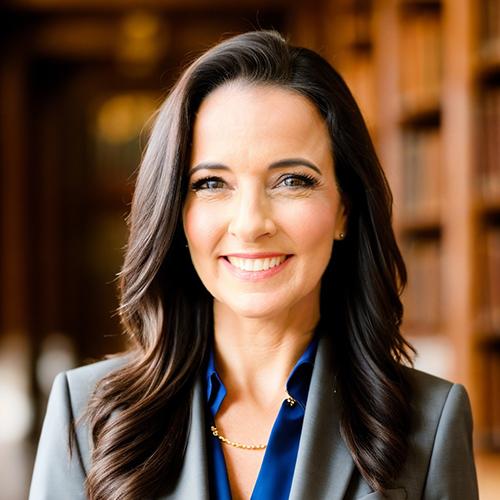Faculty Senate Minutes January 31, 2019
January 31, 2019
3:30 p.m., Faculty Reception Room
(Approved 2/8/19)
Present: T. Moretti (Chair), D. DeFino (Secretary), J. Alstete, M. Bard, D. Brophy, A. Bishop, A. Howerton-Fox, M. Hughes, R. Jantzen, J. Kaalund, A. Kelso, E. Mariola, M. Nadel, C. Tsai, M. Veyvoda
Excused: G. DeFeis, M. Draeger, L. Ivanov, C. Martins, H. Park
T. Moretti called the meeting to order at 3:34 p.m.
Announcements
Due to a scheduling conflict, L. Ivanov will not be able to attend SP19 Senate meetings in person, but will continue to contribute to Senate conversations online.
College Harrassment Policy and Indemnification
K. McElroy (General Counsel) visited the Senate to clarify several points about the new College policy on Harrassement and Discrimination, focusing in particular on procedures and faculty indemnification. Highlights of the conversation are as follows:
- K. McElroy indicated that the College has insurance to cover any faculty acting within the scope of their employment, and in accordance with the policies and procedures of the College. Since reporting on possible instances of harassment and/or discrimination is a requirement of employment, any legal fees, potential settlement costs, etc. that might be incurred by faculty members caught up in a suit arising from such an instance would be covered by the College
- The two categories of information faculty are mandated to report are sexual abuse/harassment/discrimination (Tracey Wilmot, the Title IX coordinator) and intention to harm self or others (Brielle Stark-Adler, Counseling Center).
- K. McElroy also indicated that this reporting duty applies to information pertaining to instances involving faculty, students, or staff
- B. Jantzen asked about reporting to the police. K. McElroy responded that reports should first be made to the College, either through the Title IX Coordinator (T. Wilmot), Campus Security, or another member of the Concern and Response Team (CARE). The exception would be a case of imminent threat, where an immediate report to the police would be deemed appropriate. In such cases, a report to the College should be made immediately after, so that the College and law enforcement can coordinate responses
Faculty Development
D. Wheeler asked the Senate to list specific ways in which Faculty Development might maximize its impact. The following suggestions were offered:
- Given the distinct needs and expectations of any one scholarly field, Faculty Development at Iona should be housed in a faculty-led committee that represents major disciplines at Iona University: Business, Entrepreneurship/Innovation, Humanities, Natural Sciences, Professional Studies, Social Sciences.
- Department chairs can then share suggestions and concerns with the FD committee.
- Guarantee a set sum of money to all faculty annually, to be used in ways deemed most efficacious by each faculty member. This might include curriculum development, research travel, conference participation, purchasing remissions to work on larger scholarly projects (e.g.: a book), etc. Funding would be guaranteed, subject to a simple application process that would begin—as with promotion and sabbatical—at the departmental level. Funding could be partially provided for by pooling existing grant and award monies
- Grant access to more research databases to assist faculty research
- Emphasize connections between pedagogy and scholarship for RTA reviews
- Replace existing Faculty Development monthly presentations with a series of talks, led by Iona faculty, focused on specific topics of interest to and generated by Iona faculty
- Create a pool of course remissions for which faculty working on larger research or curricular projects might apply
- To develop faculty from within by creating more opportunities for faculty to share their scholarly and pedagogical work (to view Iona University as a brain trust in its own right): in particular, work that would have broader interest and application across disciplines, and would invite interdisciplinary collaboration and coordination. This might include a series of talks generated from work undertaken through the funding recommended in the first bullet point
- Hold regular Cross-school colloquia to encourage interdisciplinary scholarship and teaching initiatives between Arts and Science Faculty and La Penta Business Faculty
Formation of Merit Working Group
In order to facilitate its work, the Compensation Working Group has decided to spin off the work of designing a metric for performance-based pay increases. Details are forthcoming from the Provost.
Faculty Handbook
T. Moretti has nearly completed the collation of existing drafts of the revised Faculty Handbook. Once that process is complete, the Senate will review the changes. As of now, two appendixes are still missing: one on intellectual property and another on department-specific criteria for RTA reviews for renewal, tenure, and promotion. The Senate has agreed to move forward, with the stipulation that any missing elements not available at the time of review and approval will need to be approved separately.
Class Cancellation Policy
T. Moretti reported on a recent email exchange with J. Stabile regarding the Deans’ memo on excessive class cancellations. Senators discussed the following:
- In several of these cases, faculty cancelled classes without following current policy. T. Moretti offered to remind faculty of the policies and procedures for recording attendance and course cancellations
- In several other instances, faculty made up missed class meetings outside of the usual class time, but were unable to report those other meetings because no mechanism currently exists to do so on Peoplesoft. J. Stabile will look into this matter further.
- In the meantime, the Deans will continue to review excessive cancellations on a case-by-case basis.
Overtime Compensation Schedule Concerns
Last year, the College announced plans to institute a universal policy of deferring payment for overloads until the spring term, in case faculty were unable to meet their full-time load. While this policy is now practice, the Senate identifies several issues of concern:
- The practice is in direct violation of the College’s published pay schedule (included in an appendix to these minutes): https://www.iona.edu/about/administrative-offices-departments/human-resources/holiday-pay-schedule/faculty-pay-schedule.aspx
- The practice is to disperse overload payments over the four spring faculty pay periods. This isunfair and against best practices, and runs counter to the college’s “Commitment to compassion, transparent decision-making, and accountability” in its value statement (2012),, given that the question of faculty load is settled once the spring semester begins, and there is no reason to withhold full payment beyond the end of January.
- Given the college’s “commitment to compassion, transparent decision-making, and accountability” in its current Value Statement and its emphasis on “justice” in the Mission Statement, the Senate recommends that the pay schedule be updated to reflect current policy, and that starting in 2019/2020 FY, Fall overtime pay be received in one lump sum in the February paycheck.
- While department chairs are often put into a position where they are forced to take on overloads, they remain compensated at the lower “stipend” rate. In effect, they are being penalized for fulfilling their duties
Potential Extra Senate Meeting
Given the number of major initiatives coming to fruition in the spring term (Strategic Plan, Compensation Plan Phase 2, Scheduling and Calendar Proposal, Undergraduate Academic Plan), the Senate may need to schedule an extra meeting in April.
Old Business
None
New Business
T. Moretti will check with D. Wheeler about the schedule for faculty awards applications and populating faculty awards committees.
T. Moretti adjourned the meeting at 5:26 p.m.


